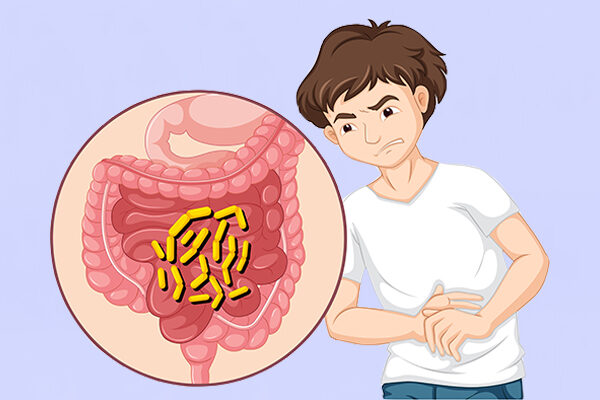Last Updated on December 19, 2022
Overview
Sound mental health is essential at every step of life, from childhood to adulthood. It affects how we feel, think and act by affecting our emotional, physical, psychological, and sociological well-being. In short, good mental health can have a positive impact on the quality of life. Obsessive-Compulsive Disorder (OCD), people experience obsessive and intrusive thoughts that make their life extremely challenging. In this blog, we will be discussing obsessive vs intrusive thoughts, how they affect the quality of life, and ways to navigate through those thoughts.
What Is Obsessive-Compulsive Disorder (OCD)?
It is a common mental health condition that presents as obsessions and compulsions. It affects men, women, and children equally. The symptoms start to appear in early childhood and continue into adulthood. The obsessive vs intrusive thoughts that are a core symptom of OCD makes one’s life challenging. There is no sure-shot treatment for OCD, however, behavioral therapies and symptomatic management can help alleviate the symptoms.
Research is still underway to help us understand the science behind obsessive behavior in OCD and ways to stopping compulsive behavior.
Obsessive vs Intrusive Thoughts
Intrusive thoughts include repetitive thoughts that are irrelevant or insignificant and cause severe distress to an individual. These thoughts are usually meaningless but are scary. The frequency of obsessive thoughts is an indicator of OCD.
Whereas, obsessive thoughts are repeated thoughts and urges or mental images that cause severe anxiety. Obsessive thoughts also fall under the category of OCD. Some common obsessions are fear of contamination, germs, and fear of misplacing, losing, and forgetting things.
Obsessive vs Intrusive Thoughts: Overlap Of Obsession, Anxiety, and Depression
The relationship between OCD and anxiety is quite straightforward. Anxiety is the focal symptom of OCD. However, the link between OCD and depression is rather based on causation. A person suffering from OCD or anxiety oftentimes finds himself feeling hopeless, or unable to enjoy life, all of which are the striking features of depression. This is how the overlap of obsessive thoughts, anxiety, and depression impacts the affected individual and causes severe distress.
Compulsive Behaviors and Addiction
Compulsive behavior and addiction are usually mistaken to be the same thing. However, there is a thin line between the two.
Compulsion is an insatiable urge to do something. Whereas, addiction is to perform actions in order to achieve pleasure or to eliminate discomfort.
Behaviors associated with compulsions are usually out of fear and anxiety of what will happen if they do not follow the urge. On the other hand, behaviors associated with addiction are usually linked with pleasure in healthy individuals but it becomes crippling when it turns into an addiction.
Obsessive vs Intrusive Thoughts: Science Of Compulsive Behavior And How To Stop It?
The exact cause of compulsive behavior is not yet established. However, various factors that may contribute to causing OCD include genetics, brain abnormalities, and environmental factors.
Obsessive vs. Intrusive Thoughts: Tips For Stopping Compulsive Behavior
Becoming cognizant of your thoughts is the first step toward recovery. There are certain easy tips and tricks that can help in achieving the peace of mind you long for in OCD that helps in stopping compulsive behavior:
- Meditation: Acceptance is the key to healing. Try to sit with your difficult feelings and thoughts. Let your emotions flow and accept that they are just thoughts and nothing more than that. This way you will be dealing with your behavioral issues more realistically.
- Cognitive Behavioral Therapy (CBT): CBT helps to create that dissociation between intrusive thoughts and obsessions that turn into compulsions.
- Visualization techniques: Visualizing your thoughts can allow you to feel more in power over them.
- Journaling: Externalizing your thoughts is really important to help you overcome your fears. Journaling is a great tool that helps liberate your mind from all negative and intrusive thoughts.
- Walk & Enjoy Nature: A walk outside to get fresh air is all you need to unwind from your monotonous thoughts. Walking in nature helps to sharpen cognitive skills as well.
How Does Exposure And Response Prevention Help In OCD?
Exposure and Response Prevention is a type of Cognitive Behavioral Therapy. In this procedure, the affected individual is exposed to thoughts, images, objects, and situations that make him/her uncomfortable and anxious. Response prevention refers to avoiding performing a compulsive behavior as a response to those triggers. All of this is done under the supervision of a therapist.
During the ERP Procedure:
- You may observe an increase in your anxiety levels
- You will notice that those feelings make you uncomfortable and anxious but you will also realize that they are not as harmful as you consider them to be
- You will realize that once you start to confront your thoughts, they will eventually begin to subside
- You will become better at dealing with your obsessive thoughts, anxiety, and depression
Recovery Is Not Linear
The path to recovery is never easy. It is definitely not linear. Recovery is oftentimes muddled and chaotic. It may look like you are winning one day but then defeat becomes your reality the next day. Recovery for people with OCD is not the absence of symptoms but the joy of living and enjoying the imperfections in life. It is true happiness that comes from within, despite knowing that there is a long way to go.
Investigating Potential Treatments At Revive Research Institute For Obsessive vs Intrusive Thoughts
Revive Research Institute is conducting OCD Clinical Trials to test the long-term efficacy of an investigational drug in people suffering from OCD who are unable to achieve the desired results from traditional OCD treatment. Our aim is to help people overcome obsessive thoughts,
anxiety, and depression and live their life in a more comfortable and fulfilling manner.
The Takeaway
In conclusion, obsessive vs intrusive thoughts are challenging to deal with. But, the good news is that it is possible to manage the condition with a positive mindset that will help in quick recovery as well. Knowing your symptoms, and understanding your emotions is one of the best ways to overcome your fears and ultimately your condition.




